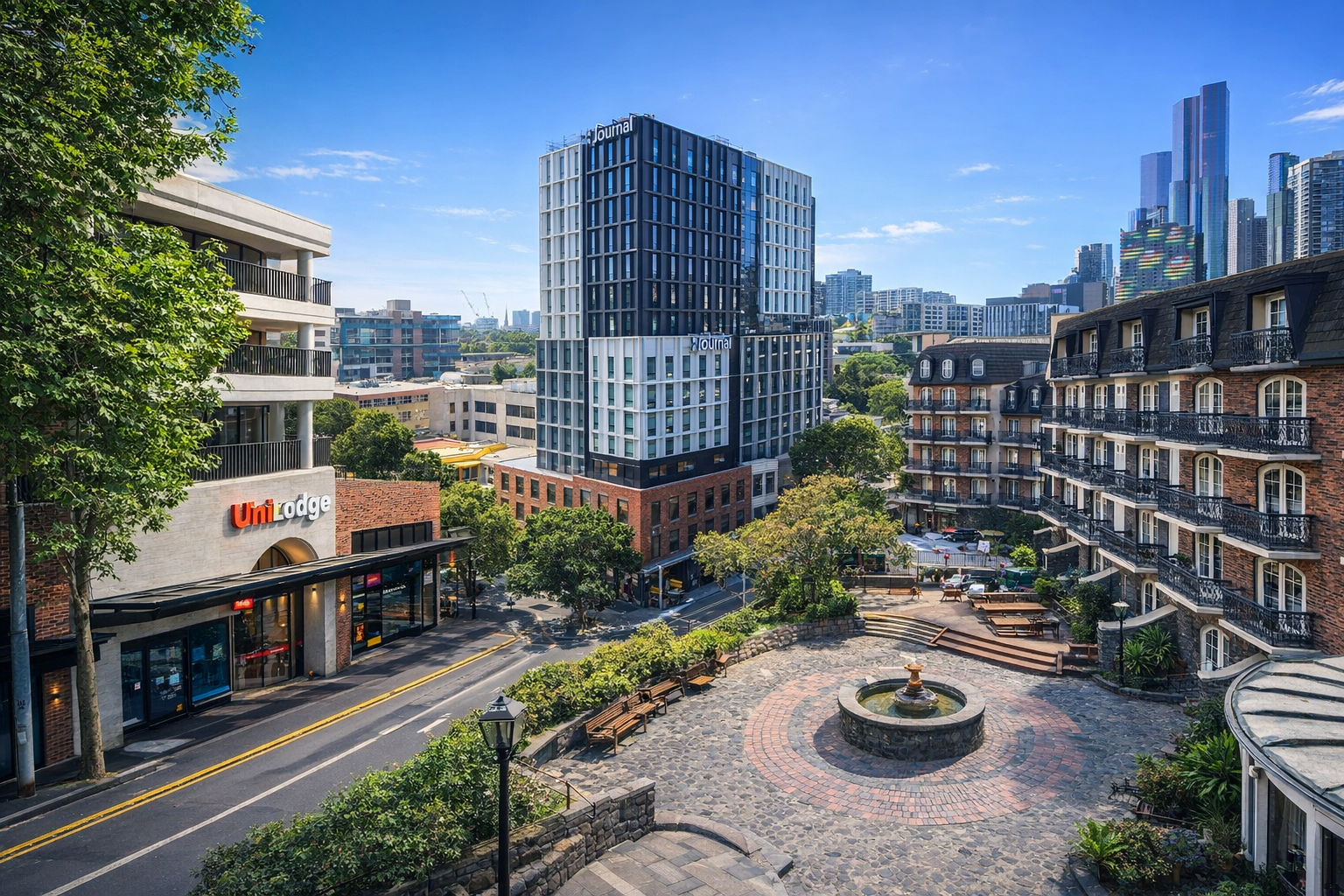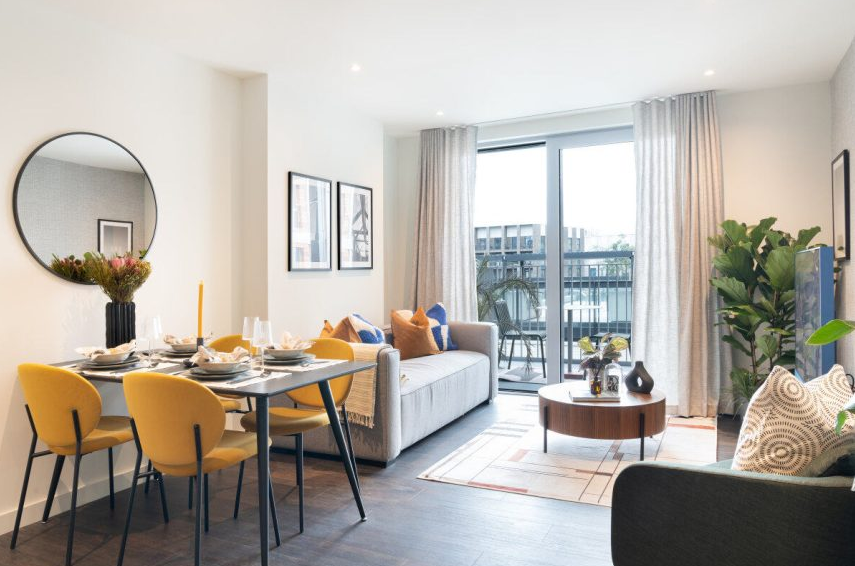Allow me to introduce myself. My name is Tom, an experienced local living in the UK for almost 10 years. I deeply understand life in London, including food, housing, transportation, and more. Working with uhomes London, a property management company, has given me extensive knowledge of the student accommodation rental industry. In this post, I will start by addressing some common questions regarding renting in London, establishing a solid foundation of understanding. If there is any specific information you would like to know about renting or housing student accommodation in London, please do not hesitate to send me a private message or comment below, and I will gather and share the relevant information.
Q1. What are the different types of student accommodation in London?
Ensuite Apartments: Ensuite apartments consist of a private bedroom with an attached bathroom. While you enjoy the privacy of your room and bathroom, you’ll typically share communal spaces like the kitchen with 4 to 6 fellow residents.

Studio Apartments: Studios offer complete independence. In a studio apartment, you have exclusive access to your bathroom and kitchen facilities, ensuring privacy without sharing with others.

Twin Rooms: Twin rooms are designed for two individuals, with two separate beds within a single room. These arrangements are often set up for same-gender students sharing living quarters, while communal amenities such as kitchens and bathrooms are shared.

2/3 Bedroom Flats: For those seeking more space and willing to share, 2 or 3-bedroom flats are an option. In this scenario, you and your flatmates jointly occupy the entire apartment, including the kitchen and bathroom. This arrangement is ideal for individuals who prefer cohabiting with a small group of friends.

Q2. What are the facilities in the apartment?
Apartment rooms in London typically come with essential furnishings, including a bed, mattress, desk, chair, and wardrobe. In the kitchen, you’ll find a stove and microwave. However, it’s important to note that personal items like bed linens (sheets, pillowcases, etc.) and kitchen supplies (pots, pans, utensils) are generally not provided and should be obtained separately.
Q3. Are Apartment Photos Worth Considering?
The photos of the student apartment accurately represent the actual rooms, although there may be slight variations in the interior layout of a few rooms. Additionally, the furniture in individual rooms may vary slightly as some facilities, such as tables and chairs, are updated or changed every year.
PS: I highly recommend logging into the uhomes website or using the uhomes app to view the apartment. In addition to photos, real videos provide a more comprehensive understanding of the apartment’s situation.

Q4. Can I choose the apartment floor?
Most apartments can choose from high, middle, or low floors based on availability. Early applicants may have more choices. If you have a specific floor preference, you can indicate it in your application, and the apartment management will try to accommodate it. However, they cannot guarantee your choice. Typically, you’ll find out your assigned floor after receiving the offer.
Q5. Can I choose the apartment facing direction?
Apartment facing direction cannot be chosen in London. In the UK, you can find houses with various orientations. While some rooms may not meet south, there are always times when sunlight reaches the flat. East-west-facing homes receive the most sunlight, but west-facing ones can become hot and uncomfortable during summer evenings. Southeast-northwest orientation is a popular compromise, avoiding direct west sun while still receiving sunlight. Each direction has pros and cons, so it’s essential to consider personal preferences and living habits.

Q6. Can I choose flatmates?
Flatmates are randomly assigned, but if you want to live with friends, you can make a note when applying for an apartment.
Q7. Are bills included in the student apartment? What do bills include?
Most student apartments in London are covered by bills, including water, electricity, gas, Internet, etc.
Q8. Do student accommodations in London have car parking spaces?

Q9. Is there a TV in your flat?
Most apartments do not provide televisions in the rooms. However, residents are free to purchase their TVs. Please note that you’ll need to legally buy a TV License to watch television in the UK.
Q10. Are pets allowed in apartments?
Pets are not allowed in student apartments.
Q11. How to apply for student accommodation in London??
- Research Accommodation Options: Explore different universities and colleges in London to find out what student accommodation they offer. Look for on-campus halls of residence or private student housing options.
- Check Application Deadlines: Ensure you know the application deadlines for student accommodation. These deadlines may vary depending on the institution or housing provider, so checking their websites or contacting them directly for accurate information is essential.
- Fill out Application Forms: Once you have chosen your preferred accommodation option, fill out the application form provided by the university or housing provider. The state may ask for personal details, course information, and preferences for roommates or specific facilities.
- Submit Required Documents: Some applications may require additional documents such as proof of enrollment, identification, or financial records. Prepare and submit these documents along with your application to complete the process.
- Pay Any Required Fees: Some accommodation applications may require a deposit or booking fee. Review the payment instructions and submit any required fees to secure your accommodation.
- Await Confirmation: After submitting your application, you typically receive a confirmation email or letter from the university or housing provider. This confirmation will notify you of the status of your application and provide further instructions if necessary.

Q12. How much is an apartment deposit in London?
The deposit for student accommodation in London is generally between £250-400.
There are two types of deposit, “Advanced Rent” and “Damage Deposit”:
-
- Advanced Rent: Advanced rent refers to the payment made by a tenant in advance for a specific period before occupying the rental property. It is typically paid before the tenancy begins and covers the initial rental period. For example, if a tenant pays rent for the first month in advance, they have paid for that month before moving in.
- Damage Deposit: A damage deposit, or a security deposit, is a sum of money paid by a tenant to the landlord or letting agent as a form of protection against potential property damage or unpaid rent at the end of the tenancy. The deposit serves as financial security for the landlord, who can deduct any necessary repairs or outstanding rent. If there are no damages or special payments, the deposit should be returned to the tenant at the end of the tenancy.
Q13. What is a uhomes service charge?
There is no service charge for booking most student apartments in uhomes. Charging services are specifically marked.
Q14. How do I pay the apartment deposit and rent?
After receiving the apartment offer, the deposit and rent should be paid by Visa or Master card.
There are alternative choices available to you. Most apartments can be paid for using the uhome app or an international transfer directly to the apartment account.
Q15. Can I pay the rent in instalments?
Generally, you cannot unless a British guarantor residing in the UK with long-term residency, an NI number, and a stable income is required to secure a rental. However, there are exceptions where particular apartments allow for payment in two or four instalments without needing a guarantor.
Q16. What is the duration of the rental period?
For graduate students, the typical rental period is 51 weeks, whereas undergraduate students usually rent for over 40 weeks. The rental period for the apartment is fixed and generally cannot be adjusted.
Q17. Can I sublet my apartment during the lease term?
Subletting is generally allowed for apartments, although some may have specific booking requirements for April to June. For students who have already reserved a room in a different country, uhomes can assist in finding a suitable tenant.
Q18. Can I check in early to the student apartment?
Typically, early check-in is not permitted for apartments as the week prior to check-in is usually dedicated to annual cleaning, facility repairs, and other necessary maintenance tasks.
Q19. Is it possible to book an apartment during the summer language course?
You can book an apartment during the summer language course, typically from June to August. However, please note that the rental price during this period may differ from long-term rentals.
Q20. Is it possible to book an apartment before receiving an offer from the college?
Of course yes. You can make an apartment appointment without an unconditional offer of college.
Q21. What is the cancellation policy for student accommodation in London?
If you cannot come to London to study due to academic performance or visa reasons, most apartments offer the option to cancel your reservation. However, the general policy is that apartments cannot be compensated for other reasons. It is essential to review the specific contract of each condo to understand their individual cancellation and refund policies.
Q22. Is it possible for an unmarried couple to share one room?
In terms of occupancy, it is not allowed to have two people in an Ensuite, whereas a Studio can accommodate double occupancy.
Q23. How long can a visitor stay in my student apartment??
Each person on the lease is allowed to have guests, including long-term ones. However, guests may start blurring the line between visiting and residing after around two weeks, which can have legal implications depending on local laws.
Q24. Are there any student express services available for student accommodation in London?
Once you have checked in, the apartment’s front desk can receive and hold your packages.
Q25. How do I check-in?
To complete the check-in process, typically, you will need to present your passport and school offer as required documentation.
Q26. What is the required check-in time?
The typical working hours for apartment check-ins are usually between 10 a.m. and 5 p.m., but this can vary between apartments. If you need to check in outside of these hours, it is advisable to contact the condo beforehand for further assistance.
Q27. Is it possible to send my luggage to the apartment ahead of time?
Typically, apartments accept luggage 1-2 days before the start of the rental period. However, it is advisable to contact the apartment in advance and avoid sending your luggage too early.
Please organize these details for now, and I will provide you with the information about each apartment next time. If you have any other rental needs, feel free to contact me privately or leave a comment. I am eager to leverage my experience to assist you.








